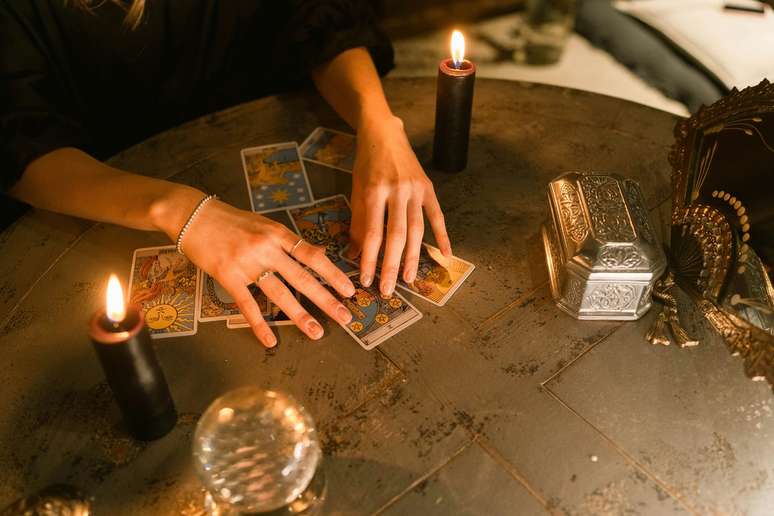Negative cards, bad suits or religious practice? It’s not really like that. Come and discover the truth behind these myths
Tarot is a mystical tool that arouses curiosity and fascination, but it is also surrounded by many myths. In this article we will demystify the top 10 misconceptions about Tarot, bringing clarity and understanding to this ancient practice.
Before that, if you have any challenging questions, Play Direct Tarot here and receive advice on which paths to take.
The main misconceptions about Tarot
1. Tarot cards are only used to predict the future
Many people believe that Tarot cards are only for predicting the future. Indeed, Tarot is a tool for self-knowledge and orientation. The cards help you reflect on the present and make informed decisions for the future. Here are some interesting questions to ask about Tarot.
2. Only special people can read Tarot
Another misconception about Tarot is that only people with special gifts can read Tarot cards. In fact, anyone can learn to read Tarot with study and practice. It’s a skill that can be developed like any other.
3. Tarot is a religious practice
Tarot cards are not religious, that is, it does not use any beliefs to function. Even though some cards have religious symbols, all beliefs are the responsibility of those who interpret them, never of the cards themselves.
4. Tarot gives definitive answers
Some believe that the Tarot offers definitive and immutable answers. But, in reality, the cards reflect possibilities and potential, helping to understand trends and explore different paths and choices.
5. Tarot cards are dangerous
There is a fear that Tarot may attract negative energy or negative events. But cards are neutral tools; power lies in the intention and the use made of it. In this sense, they reflect the emotional and mental state of the applicant.
6. Only the Major Arcana are important
Many underestimate its importance Minor Arcanabelieving only that Major Arcana they have profound meanings, but they also bring valuable insights into practical life, everyday material life, ideas and feelings.
7. Tarot can control destiny
The Tarot does not control or determine anyone’s destiny. In fact, it offers insight into what’s to come based on your current circumstances and the choices you’ve made. Therefore, the free will of the querent is always sovereign.
8. There are very negative cards
Cards like “Death”, “The Tower”, “The Devil” and “The Hanged Man” are seen as negative. But The deathfor example, it can mean a symbolic end and new beginnings, while The devil It can indicate financial openness and good sexual performance. This is because no card is good or bad in itself. Therefore it is always necessary to analyze the issue and the context in which it is placed.
9. There are good seeds and bad seeds
The suits of Wands, Cups, Swords and Diamonds represent different aspects of life and are associated with the elements Fire, Water, Air and Earth respectively. There are no intrinsically good or bad seeds; each offers a different and unique perspective on the situation at hand.
10. Playing Tarot online doesn’t work
Both in-person consultations and online readings are effective. The energy and effectiveness of the readings does not depend on the format, but on the concentration and intention of the reader and the client. Discover Personare’s online Tarot games here.
The mail Discover the main misconceptions about Tarot appeared first Personalize.
Leone Chioda (l.chioda@personare.com.br)
– Leo Chioda is a writer and one of the leading tarot readers active in Brazil. He has a doctorate in literature from the University of São Paulo and his thesis is on poetry and alchemy. No Personare is the author of the Monthly Tarot, Direct Tarot and teacher of the Basic Tarot Course.
Source: Terra
Ben Stock is a lifestyle journalist and author at Gossipify. He writes about topics such as health, wellness, travel, food and home decor. He provides practical advice and inspiration to improve well-being, keeps readers up to date with latest lifestyle news and trends, known for his engaging writing style, in-depth analysis and unique perspectives.








